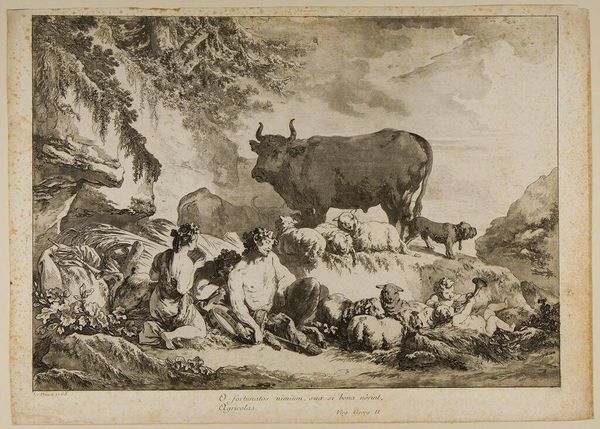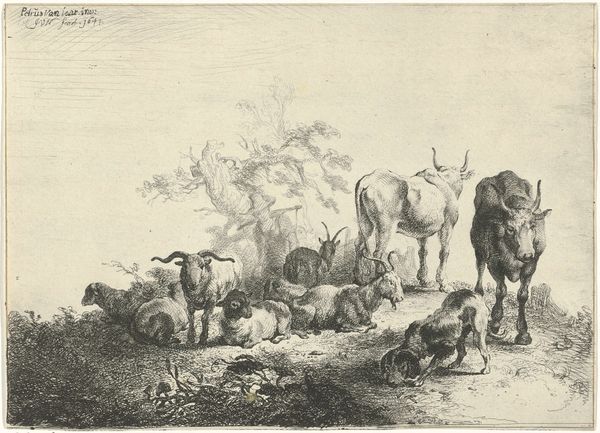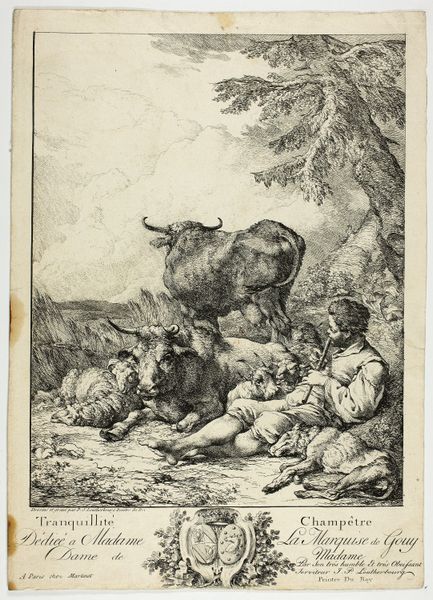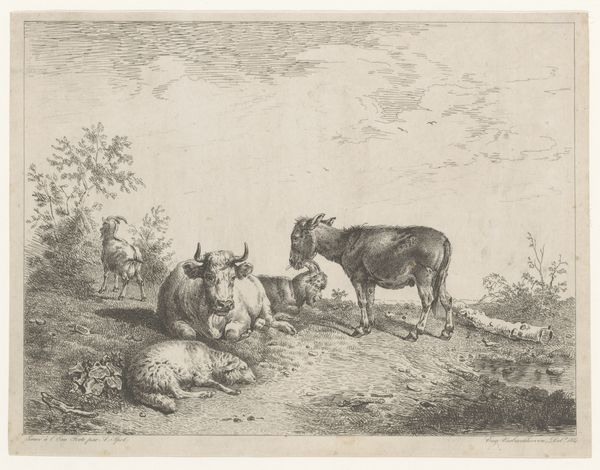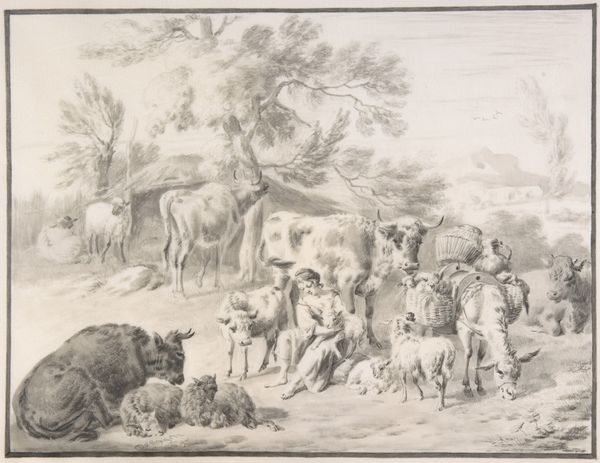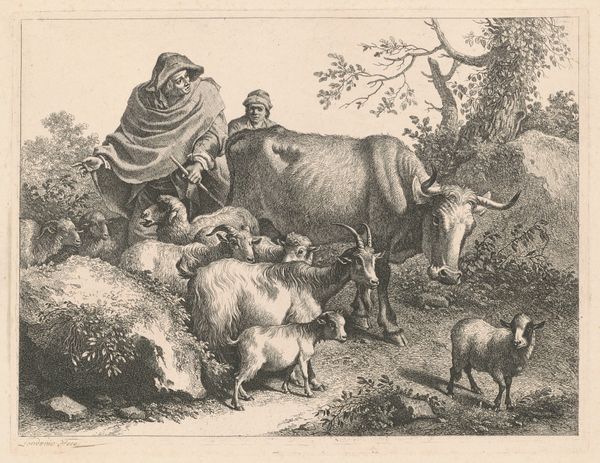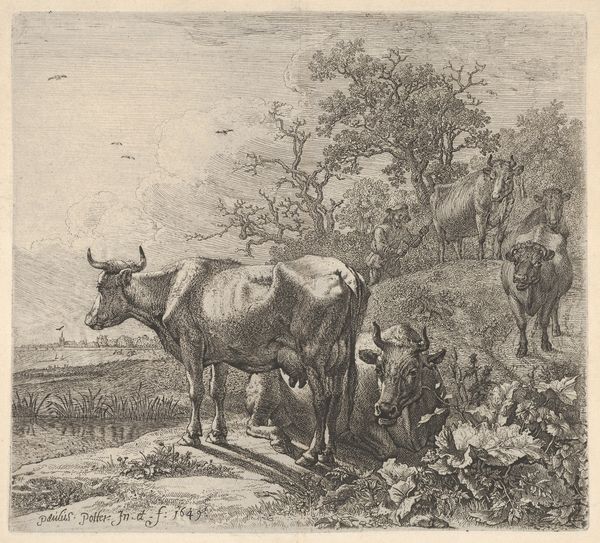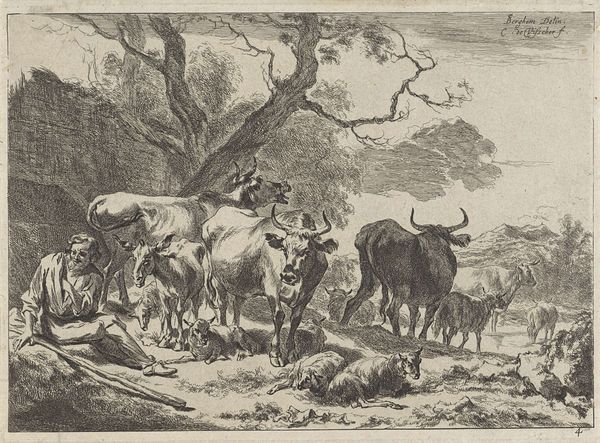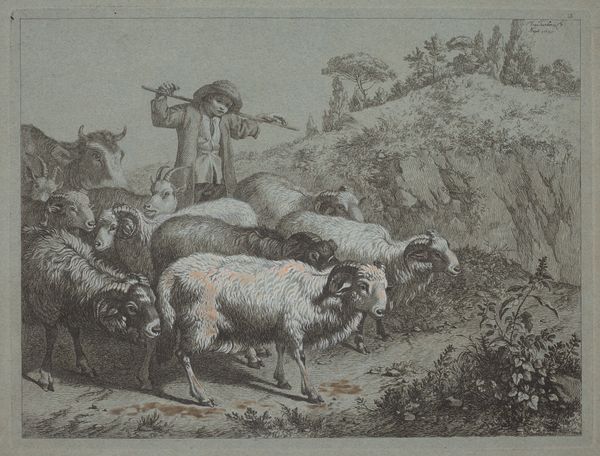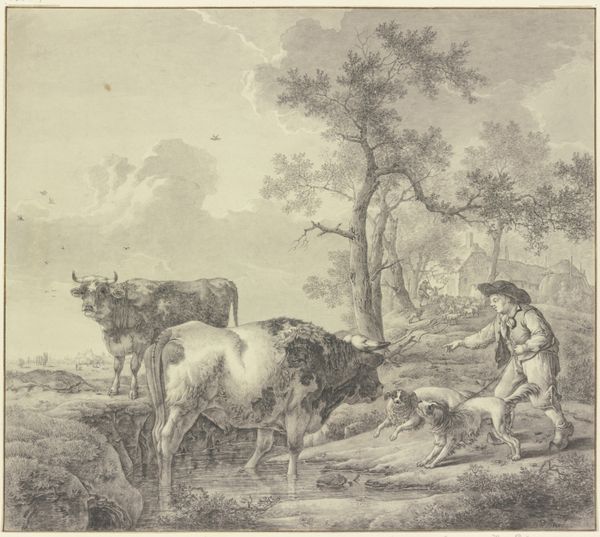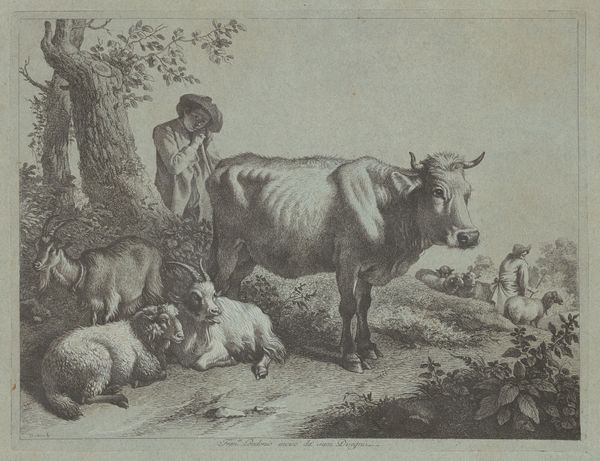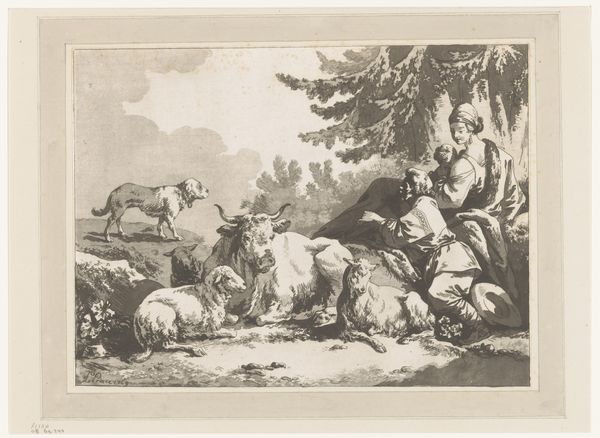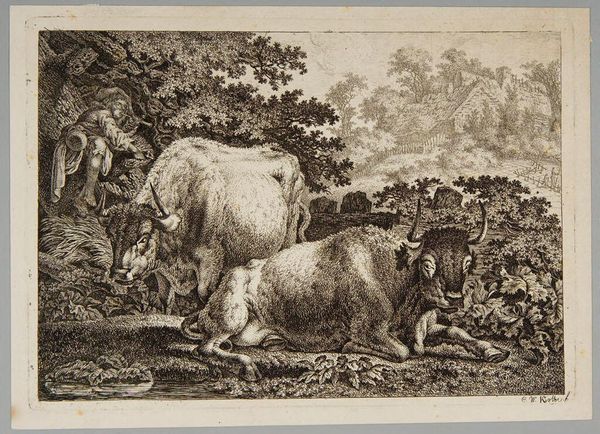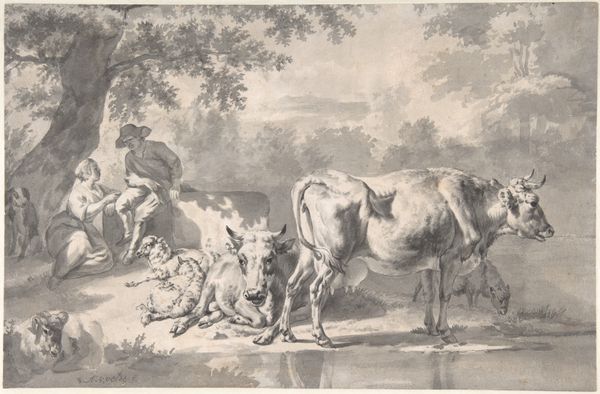
Rustende saters tussen schapen en een koe in een landschap 1768
0:00
0:00
jeanbaptistleprince
Rijksmuseum
drawing, ink
#
drawing
#
landscape
#
charcoal drawing
#
ink
#
pencil drawing
#
folk-art
#
genre-painting
#
watercolor
Dimensions: height 351 mm, width 496 mm
Copyright: Rijks Museum: Open Domain
Jean Baptist Leprince made this drawing of resting satyrs amongst sheep and a cow using brush in brown and gray ink around 1760 in France. The artwork depicts a scene from classical mythology, but the setting in a rural landscape evokes the 18th-century French interest in pastoral themes, a cultural phenomenon that arose in response to the opulence of the French court. The image creates meaning through visual codes of classical antiquity, such as the inclusion of satyrs, mythological creatures associated with revelry and indulgence, and the harmonious composition. This idyllic scene offers a commentary on the social structures of its time. While the French aristocracy indulged in lavish displays of wealth and power, artists like Leprince turned to simpler, idealized visions of rural life, perhaps critiquing the excesses of the ruling class. To truly understand this work, we can turn to archival sources, literary texts, and historical accounts. Art becomes more than just an aesthetic experience; it becomes a window into the values, beliefs, and power dynamics of a particular society.
Comments
No comments
Be the first to comment and join the conversation on the ultimate creative platform.
